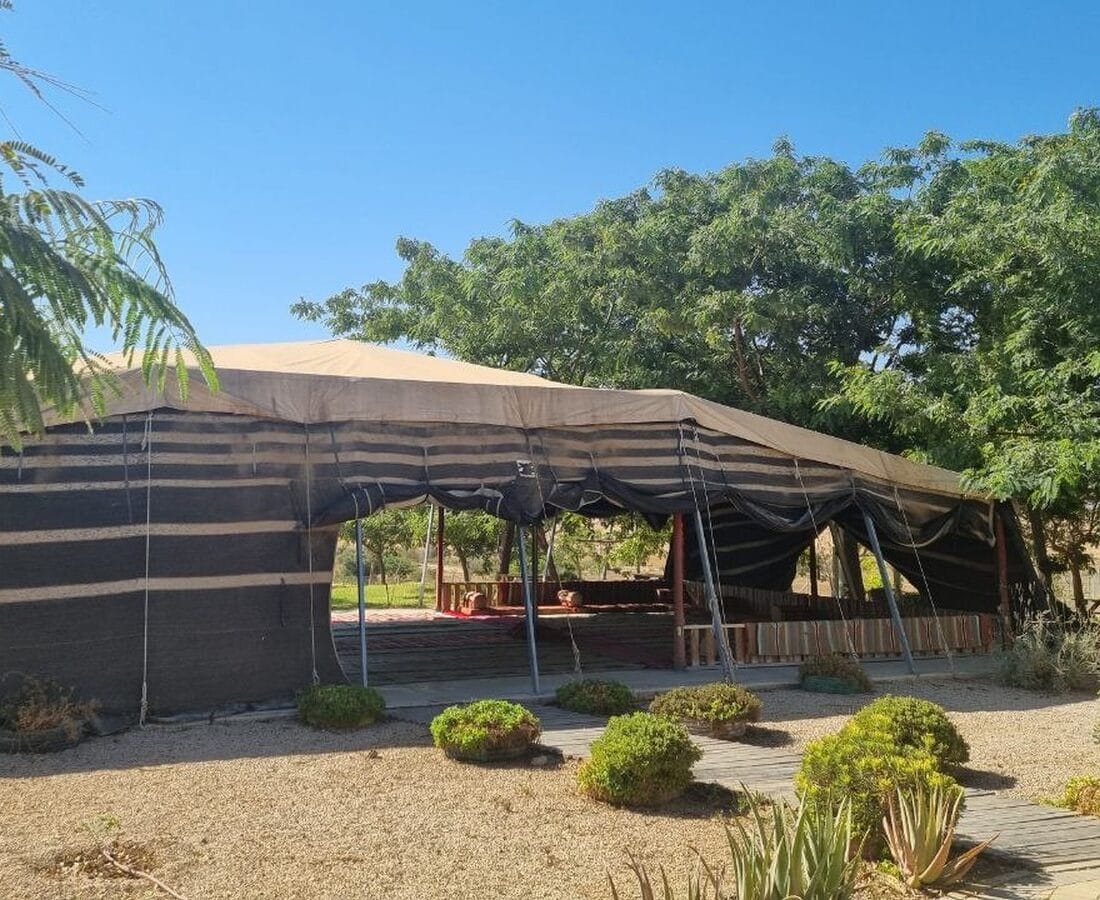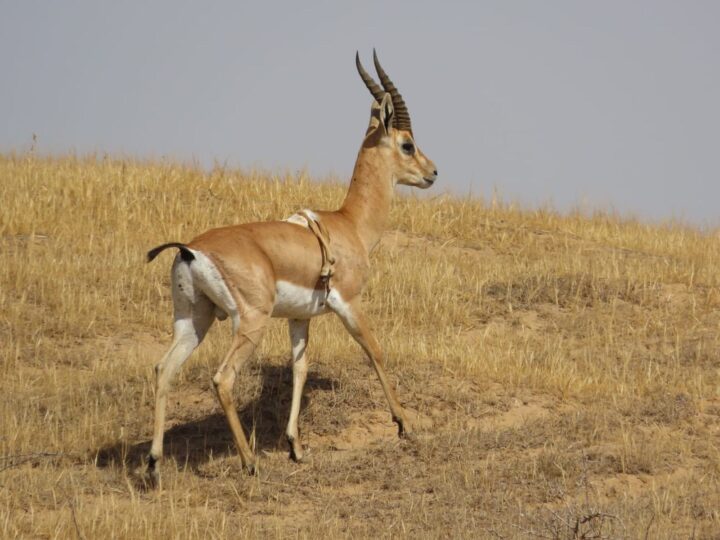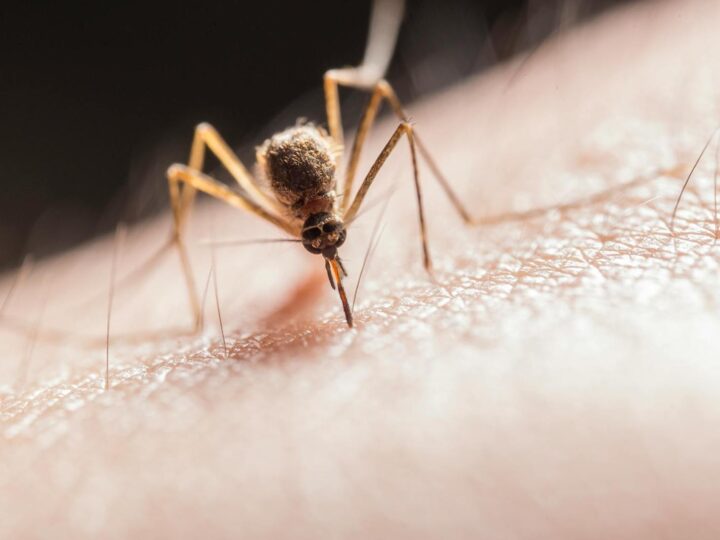Project Wadi Attir in the northern Negev near the Bedouin town of Hura, was established in 2007 as a way to combine Bedouin culture and experience with progressive notions of sustainability and green technologies such as recycling and renewable-energy production.
In the six years since ISRAEL21c last reported on Wadi Attir, the project has evolved into something much bigger.
With climate change making desertification across the planet an urgent problem, Wadi Attir aims to show the world that proper land stewardship and technologies can turn any seemingly unlivable place into an oasis.
Working since day one with Ben-Gurion University (BGU) and more recently partnering with Khalifa University in Abu Dhabi, Wadi Attir is looking to expand its collaborative efforts.
Desert restoration
“What we’re doing is desert restoration,” says Nimrod Rogel, appointed Wadi Attir’s first chief operating officer over a year ago.
“We are learning how to treat the land better, how to generate a lot less waste, and how to recycle the waste that we do create.”
Rogel says they are already seeing results. “We have a bigger variety of animals [compared to other places with a similar climate], more birds are coming here, the entire area is green, and we have a great water storage system. Ten years ago there were barely any ants here.”
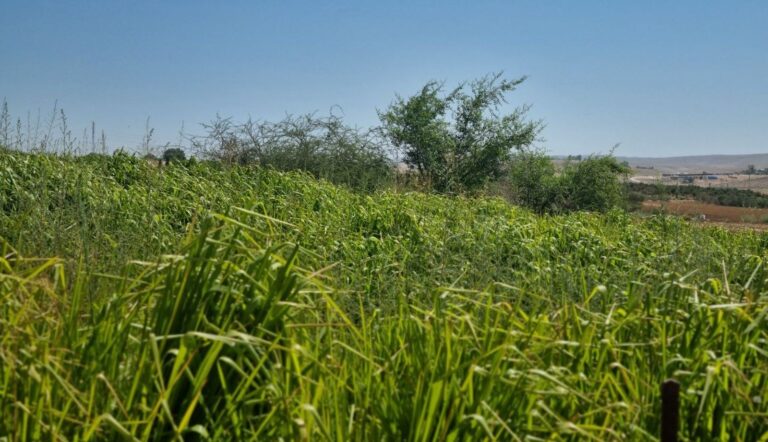
Wadi Attir recently launched a bid with the government to establish a three-pronged innovation center with an onsite desert tech department, an artificial intelligence center at BGU and a health tech center at Sheba Medical Center.
Bedouin sustainability
In January 2018, Wadi Attir opened an agricultural school for Bedouin children, one of 80 agricultural schools in Israel recognized by the Education Ministry.
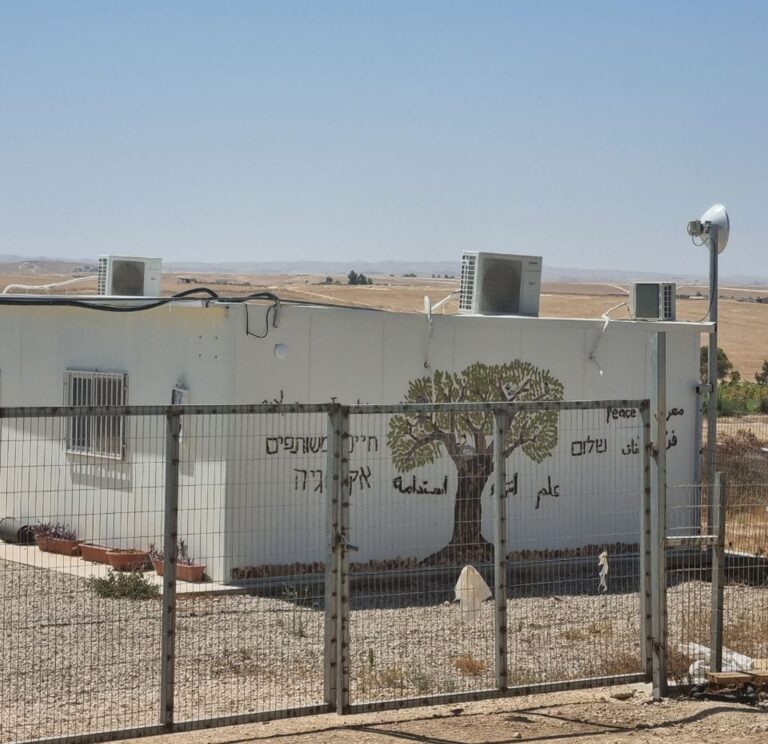
Housed in abandoned caravan trailers at the project’s farm, the school is scheduled to get a permanent building constructed in the near future.
“We teach the kids how to use the land. The school also aims to connect rival Bedouin tribes by having the children from the various tribes all study and cooperate on tasks together,” says Rogel.
Seasoned educator Jamilla Abu Kaf is the principal of the school. She has a degree from BGU and George Brown College in Ontario, Canada.
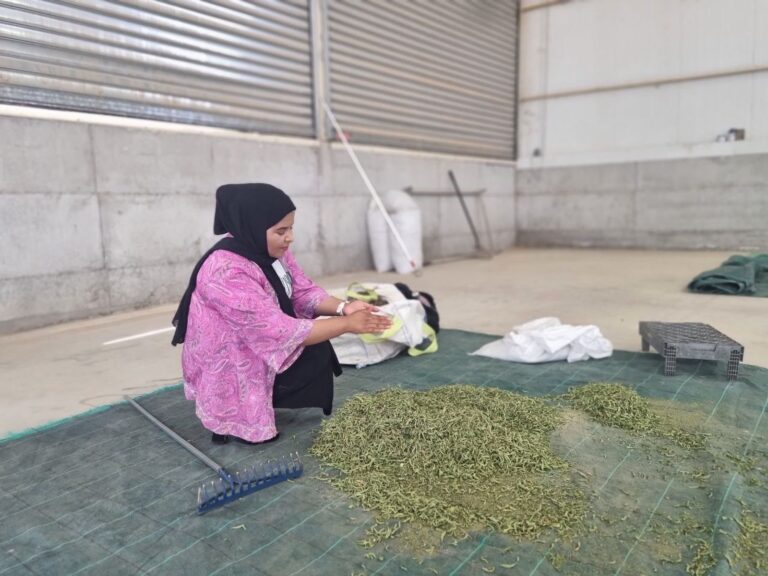
“The children here study science, agriculture, entrepreneurship and of course the values of the Bedouin traditions — which are slowly being forgotten,” she tells ISRAEL21c.
“Our grandparents didn’t have a concept of waste because everything was repurposed. Today’s kids need to learn about sustainability and environmental footprints.”
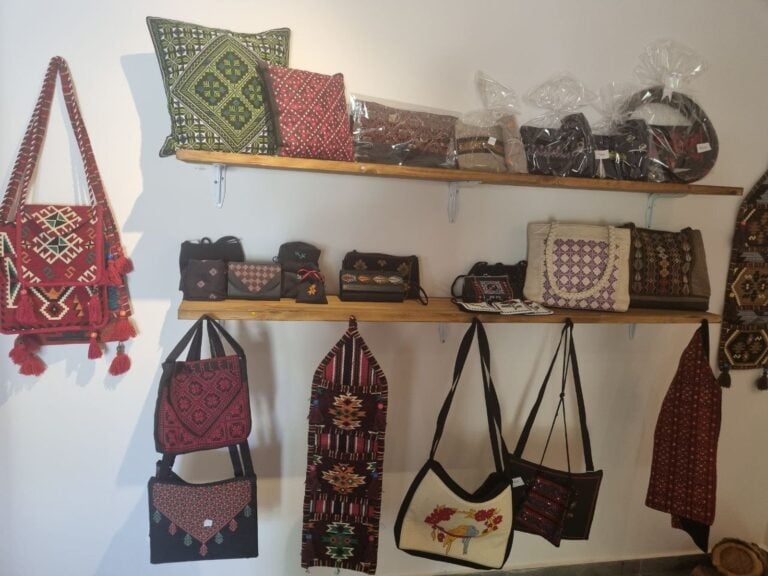
The school currently employs 10 teachers. Abu Kaf says it is very challenging to find educators willing to sign up for project-based learning that involves a lot of field work.
Wadi Attir is working with the Welfare Ministry to establish a center for at-risk youth in the Bedouin community. Some of the youth could work with younger children in the school and others could help in the dairy farm.
This can bring us peace
Wadi Attir was started in 2007 by Sustainability Laboratory founder Michael Ben-Eli and his colleague Josh Arnow, and run by Muhammad al-Nabari, a biochemist and former mayor of Hura. The Jewish National Fund USA helped to establish Wadi Attir’s visitor and educational center.
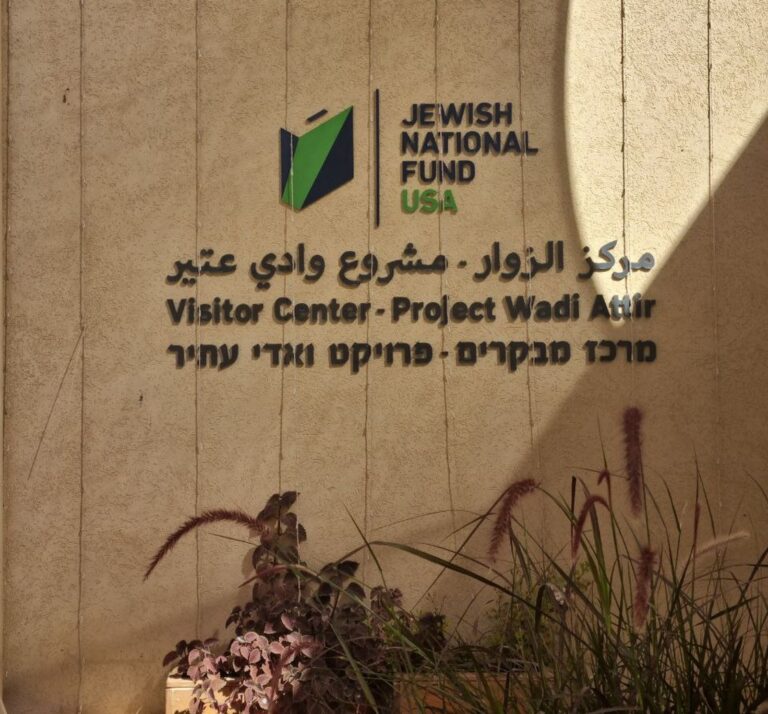
Rogel, a Jerusalem native who moved his family to the Negev six years ago in search of “a quieter and calmer life,” previously founded a nonprofit for former soldiers suffering from PTSD and a food truck business, 102 Meating Point.
“Eight months ago, Dr. Muhammad approached me and said they were looking for an entrepreneur who could help him operate and promote the project. After touring [the facilities], I told him, ‘I’m with you on this.’”
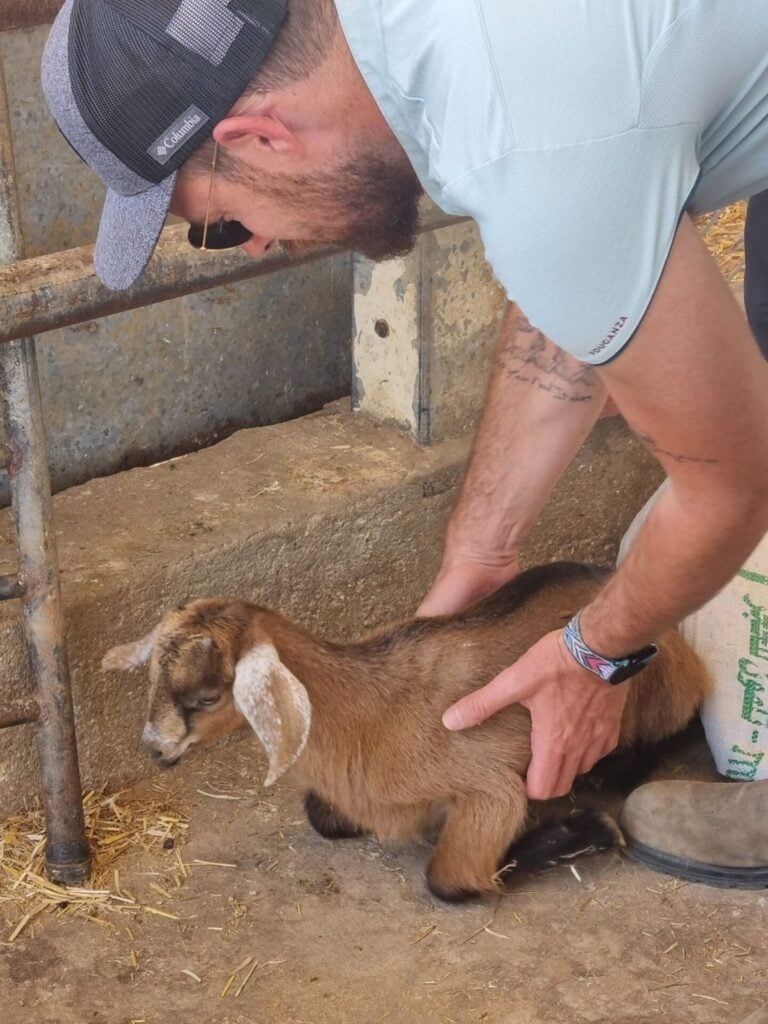
Rogel adds that he’s “a great believer” in cooperation between Jews and Arabs, and is constantly looking for ways to “learn from one another and break barriers.”
“These types of projects are what can bring us peace,” he adds.
Cheese, skincare and a possible hotel
Over the past few years, Wadi Attir had started offering a host of services to increase revenue and brand recognition.
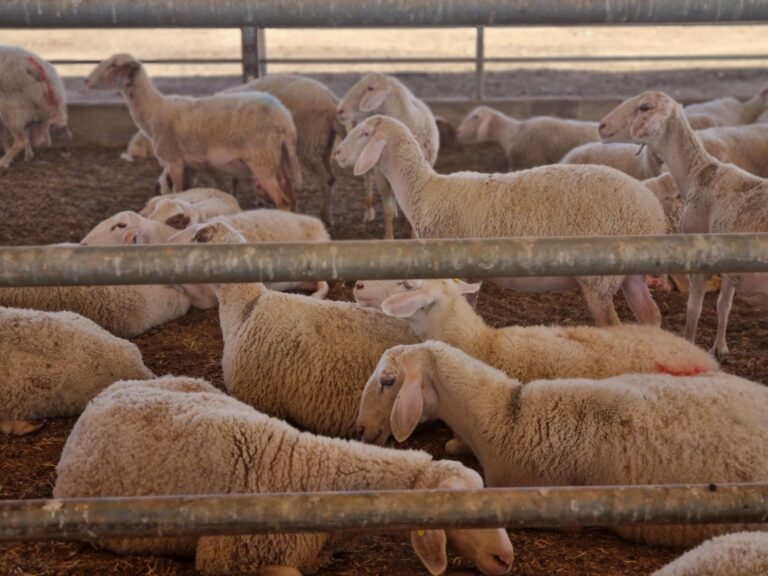
At the project’s farm, Bedouins tend goats and sheep for the production of organic dairy products to be sold.
They also grow medicinal plants and herbs based on traditional Bedouin healing methods, and have developed a line of health and skincare products.
“We’re in the process of being approved by the FDA,” says Al-Nabari.
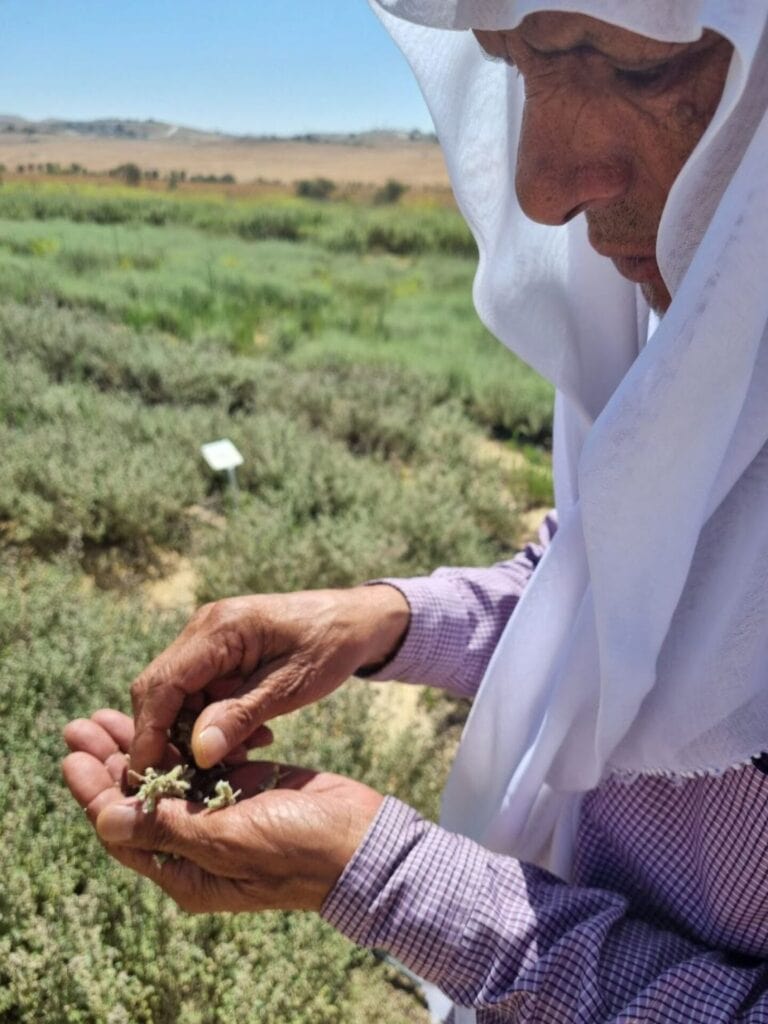
People can rent the farm to host conferences and business events. Al-Nabari hopes to build a desert hotel at Wadi Attir on the model of Jordan’s world-famous Wadi Rum Desert “bubble” hotels.
“We will also offer guided tours conducted by Bedouin tour guides,” Al-Nabari says.
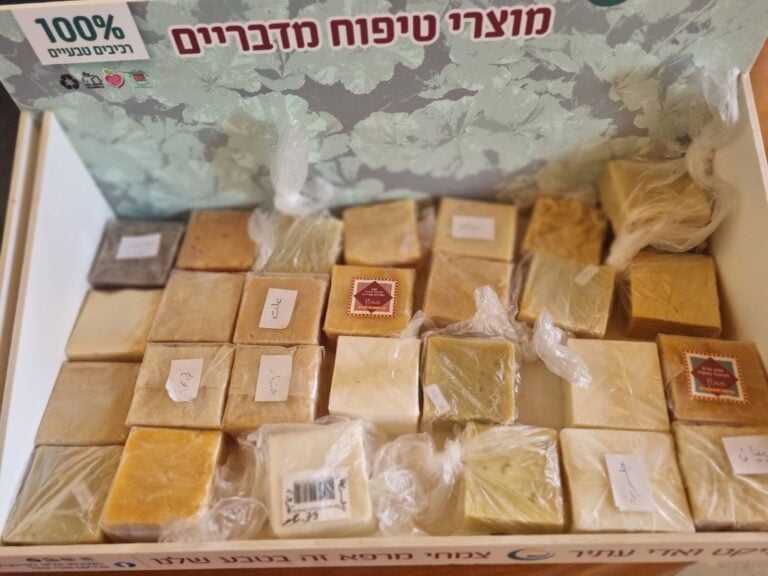
The project has been operating on grants and donations since its establishment, but the goal is to finally become fully financially independent by the end of 2024.
Post-October 7 mission
In the wake of the October 7 attacks by Hamas and the subsequent Gaza-Israel war, Wadi Attir has also embarked on a mission to forge closer ties between Jews and Bedouins in order to ensure the safe and prosperous future of the Negev.
Since October 7, a center for resilience activities has been opened at Wadi Attir. Each week, it hosts members of Arab and Jewish communities that engage in activities that support the project’s core values.
Recently, Wadi Attir also held its annual olive harvest and hosted 120 participants from diverse backgrounds. It also held olive preservation workshops, planting sessions, botanical painting lessons and medicinal herbs workshops.
Wadi Attir also purchased 100 first aid kits, and held first aid workshops for Bedouin women.
For more information, click here.




